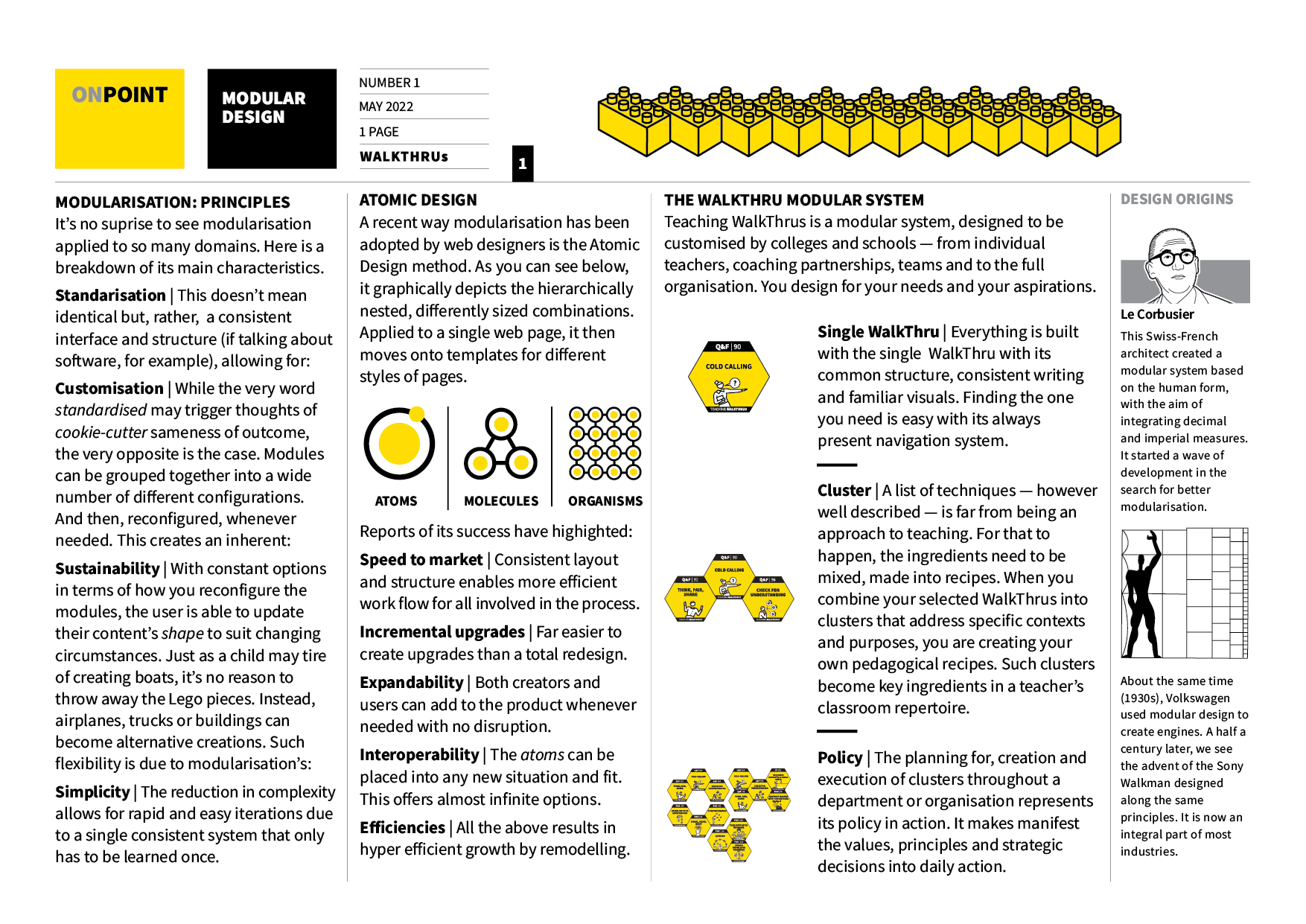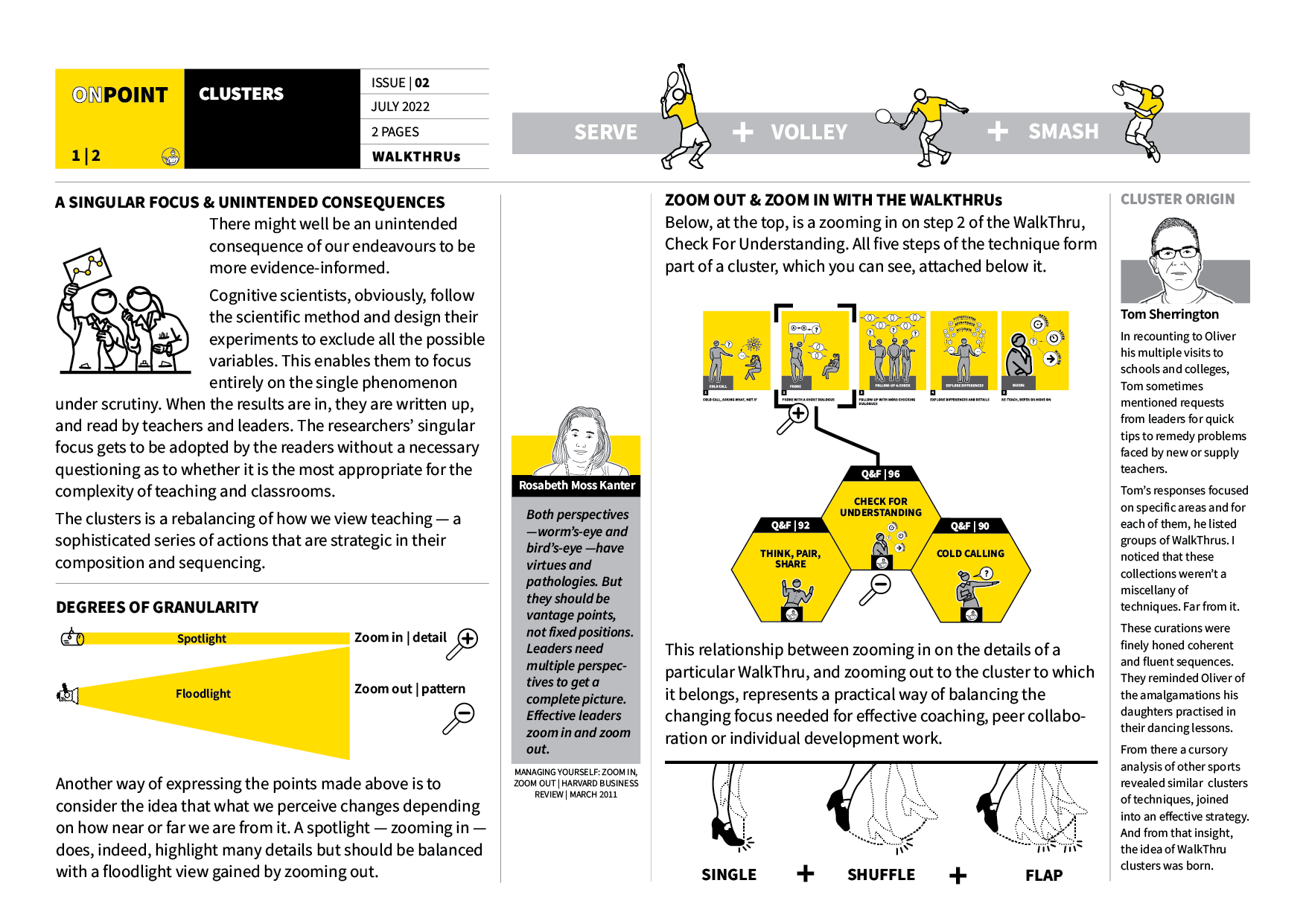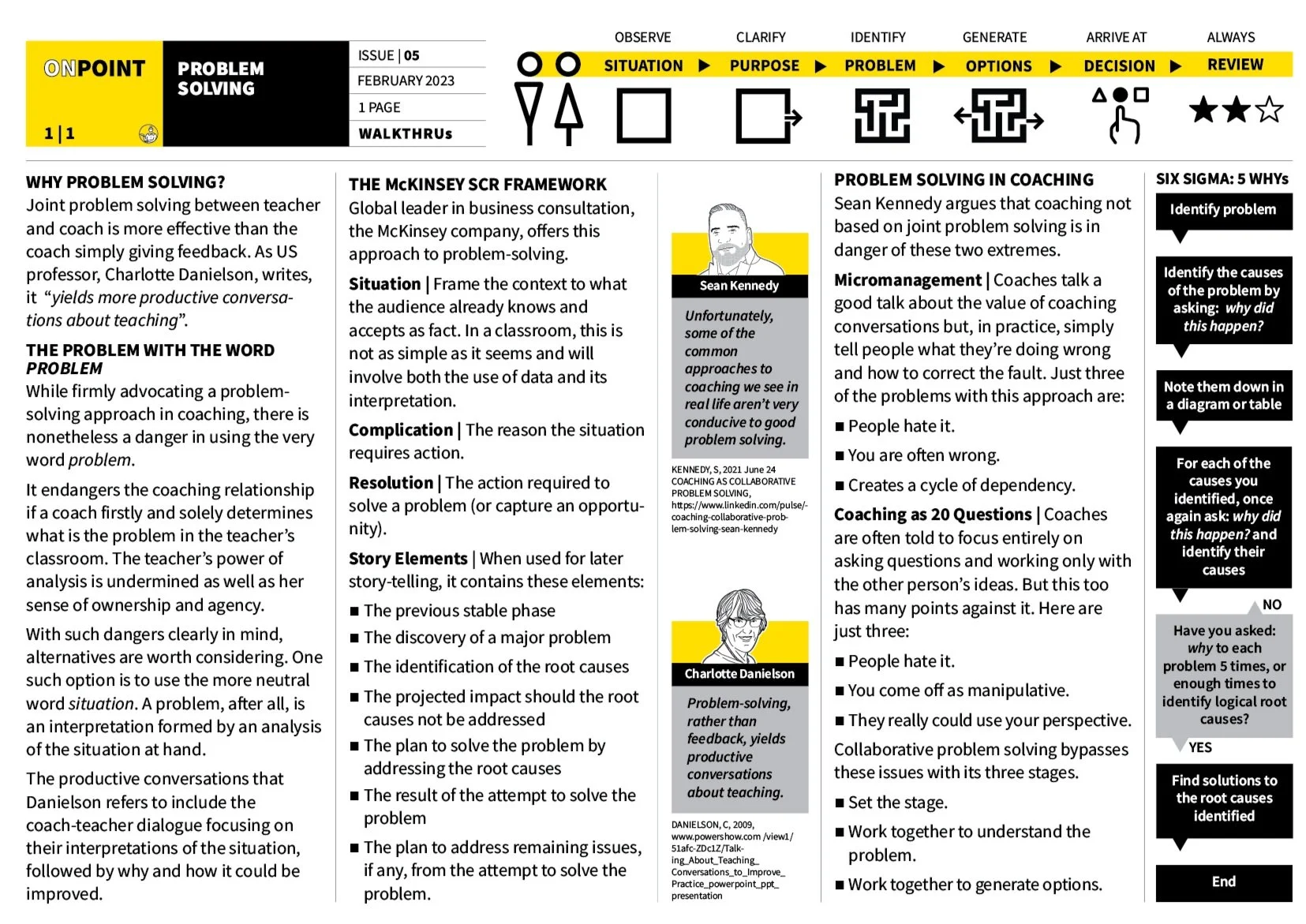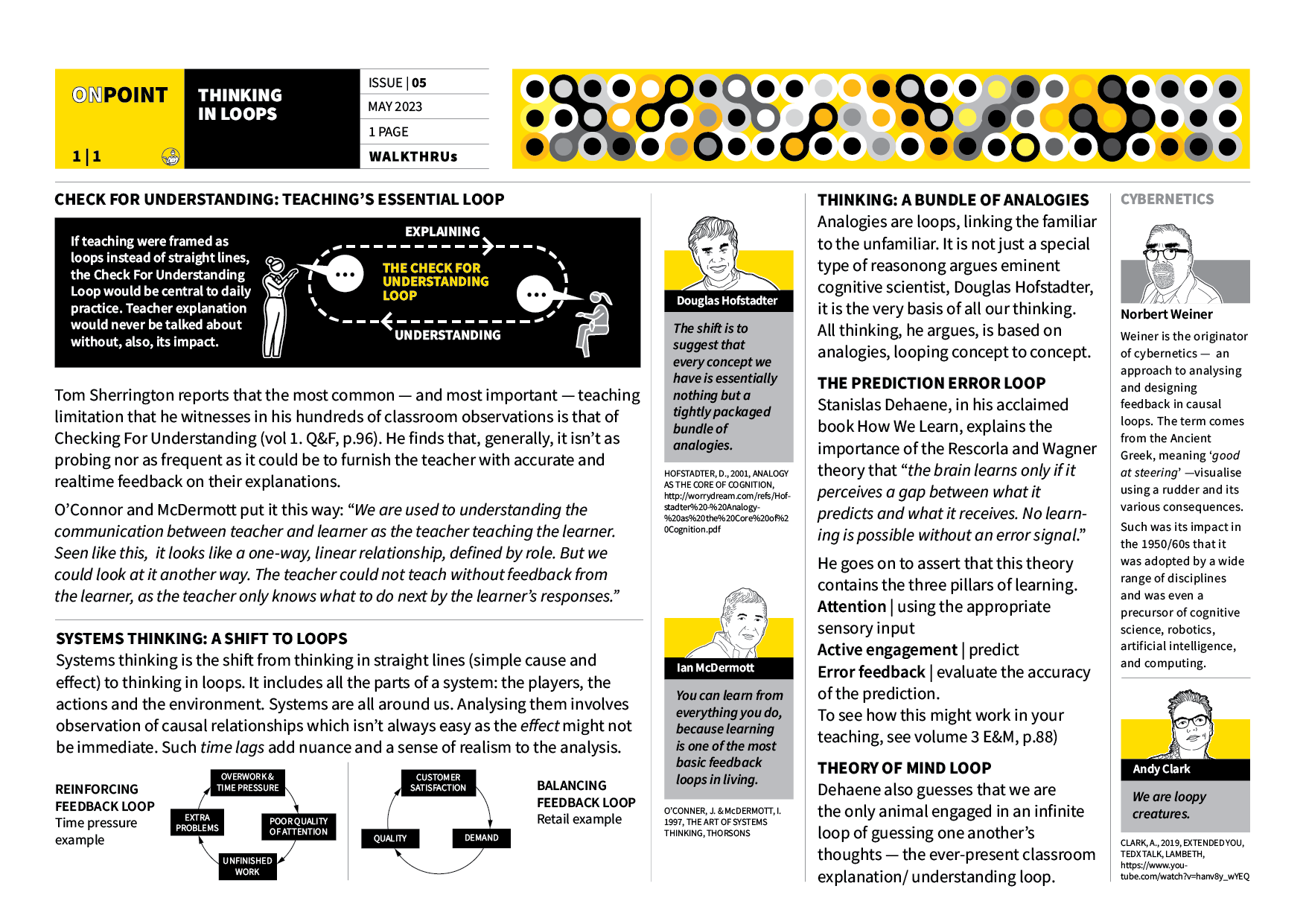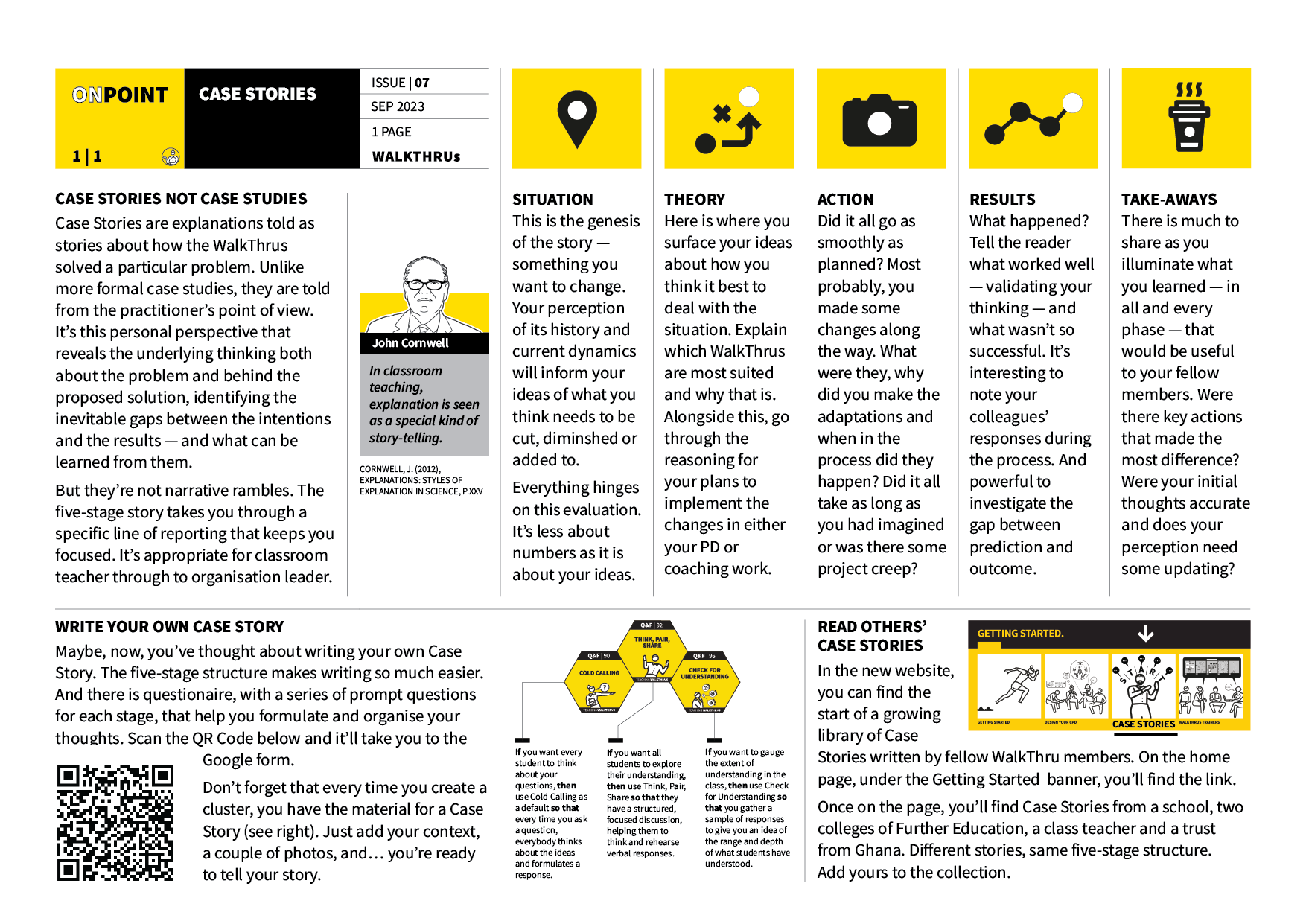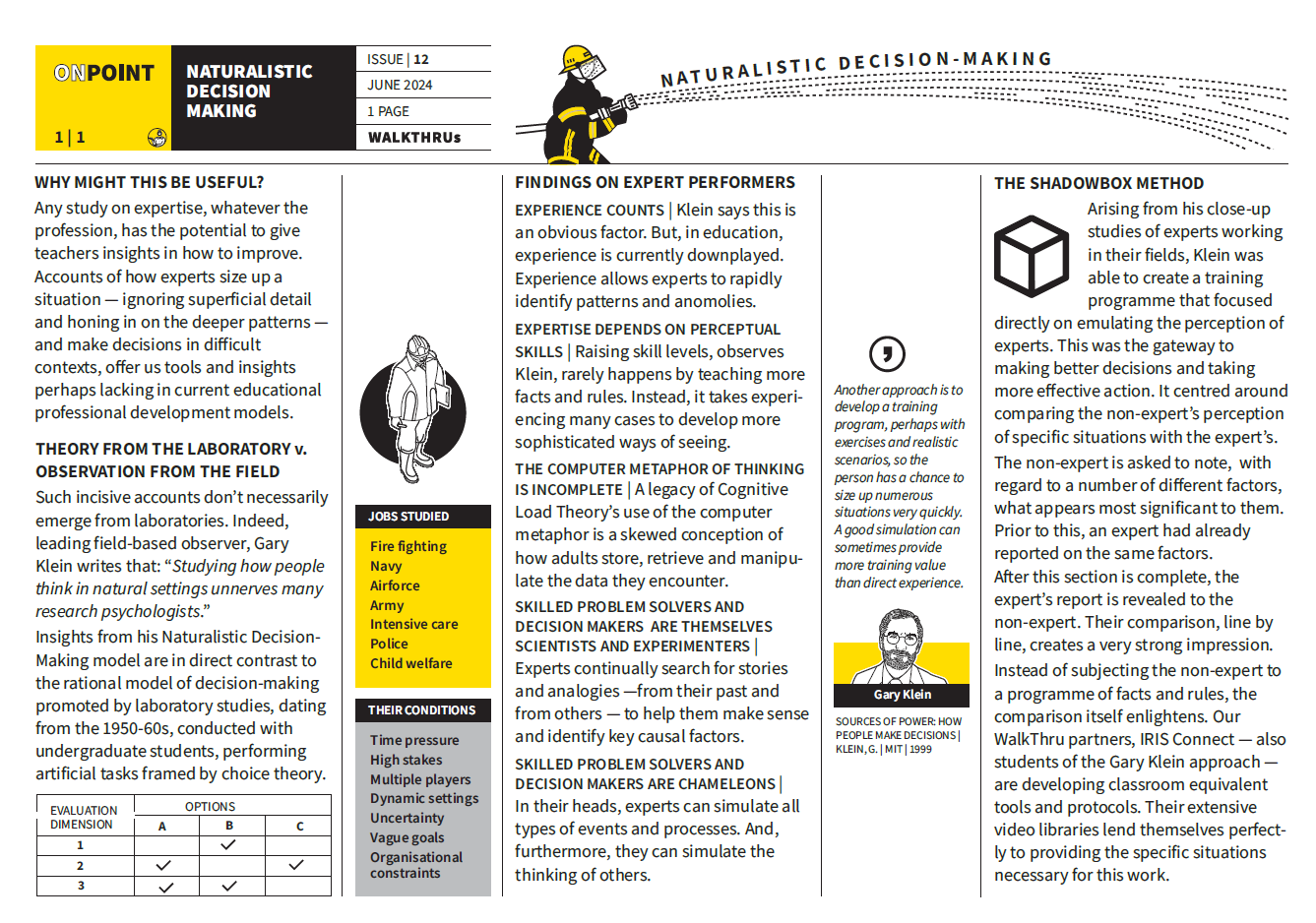WELCOME TO ONPOINT.
Sometimes it's good to read a little wider on unfamiliar topics and also to delve a little deeper into familiar ones. That's what the OnPoint series does for you. From design principles to sports psychology and from communication dynamics to analysing mental models, OnPoints take you where you otherwise might not have ventured. Yet all relatable to WalkThru practice.
ONPOINT 01 | MODULAR DESIGN
Explore the principles of modularity and how it relates to your work with the WalkThrus toolkit.
ONPOINT 04 | PROBLEM SOLVING
What is the science of problem-solving, and why is so important to teachers?
ONPOINT 05 | THINKING IN LOOPS
We are loopy creatures. Why should we shift our thinking systems from straight lines to thinking in loops?
ONPOINT 07 | CASE STORIES
Nobody reads Case Studies. Why? Because they’re often so boring! Case Stories could be the solution.
ONPOINT 10 | SCHEMAS & MENTAL MODELS
Examine the differences between schemas and mental models and their importance for effective teaching.
ONPOINT 12 | DECISION-MAKING
How do experts make decisions, and why might this be useful to teachers and teacher developers?
ONPOINT 13 | MODULARITY
How can the process of breaking down and building up complex teaching practices support effective PD?
ONPOINT 14 | RECEIVING FEEDBACK
Why is feedback sometimes problematic, and what are the solutions?
ONPOINT 15 | TRANSIENT INFORMATION
Why is the transient information effect so central to the work of teachers?



